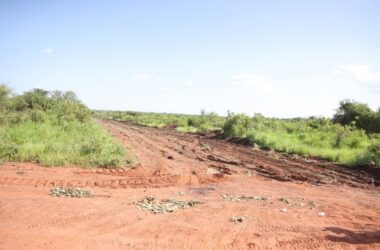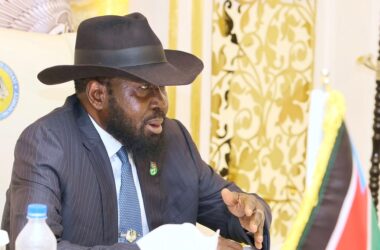By Kidega Livingstone
Completion of the Albino Bridge that connects Juba’s Kator and Malakia neighbourhoods has brought joy to the residents of the two suburbs.
The residents will now maneuver across the areas separated by the Lobulet stream with ease.
Constructed of the vital bridge by the Japan International Cooperation Agency (JICA), is a gift from the Japanese people to the South Sudanese.
Speaking at the inaugural ceremony yesterday, Deputy Chief of Mission, Embassy of Japan in Juba, Watanabe Tomoko, said it will not only connect residents of the two areas but also South Sudanese and other nationalities.
“A bridge is not just a means to cross over something. It is also a means for people to meet,” he started.
“I have been meeting with South Sudanese people for more than two years. I am meeting with South Sudanese people today (Friday) on this bridge.
The Japanese diplomat hopes that Albino Bridge, Freedom Bridge, and other bridges still to be inaugurated will be well looked after by South Sudan for their lasting friendship.
He acknowledged the commitment of the government to providing the necessary support to the construction team to overcome the challenges.
According to Tomoko, Japan has enthusiastically supported South Sudan since its independence from UNMISS in development projects and humanitarian assistance, and more than $700 million has been invested and more than 4,000 Japanese people have participated.
Albino Bridge was first built in 1969 and has not been repaired since then. Due to little maintenance, the bridge was becoming old, and the foundation was deteriorating.
It was also close to the lifespan of a typical concrete structure, which is 50 years. The bridge, located in the commercial area of Malakia in the Kator town block of Juba City, was in need of replacement.
Freedom Bridge, one of the biggest bridges built by Japan for South Sudanese people, was handed over to the government of South Sudan in May 2022.
Just like the Freedom Bridge, this bridge and other bridges under construction were built and will be built with Japanese taxpayers’ money.
Japan has been actively assisting South Sudan’s efforts for durable peace and nation-building since its independence.
Japan said it will continue to provide support for the self-sustainment efforts of the South Sudanese people.
The Albino Bridge was constructed as a grant-aid project funded by the government of Japan and Japanese taxpayers.
The bridge inauguration ceremony was attended by dignitaries of the government, including the Minister of Roads and Bridges, the Minister of Transport, the Embassy of Japan, JICA, and the general public.




